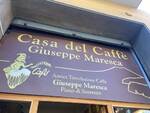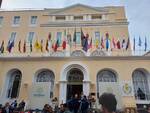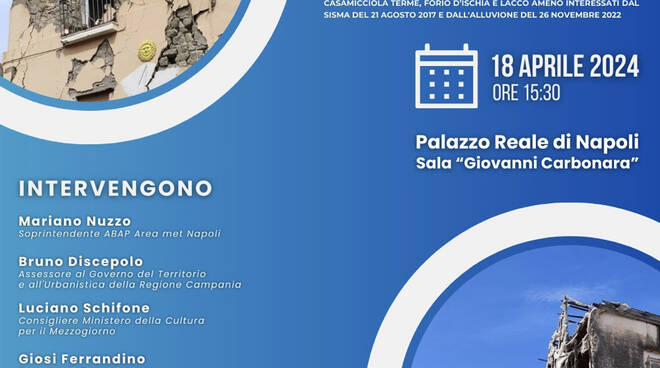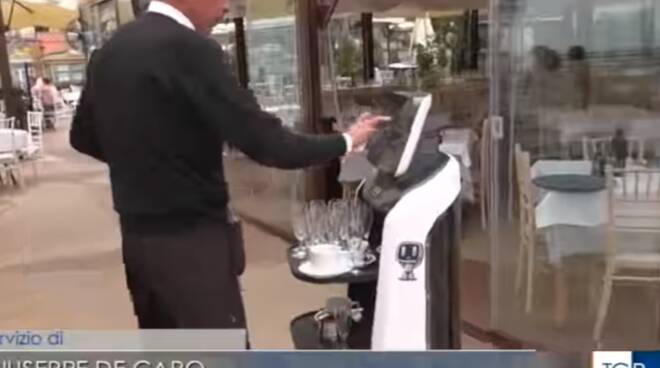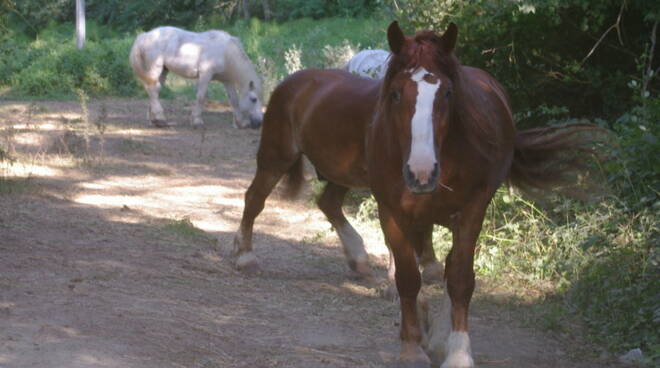Coffee – A Part of the Maresca Family’s Lifestyle foto
Più informazioni su
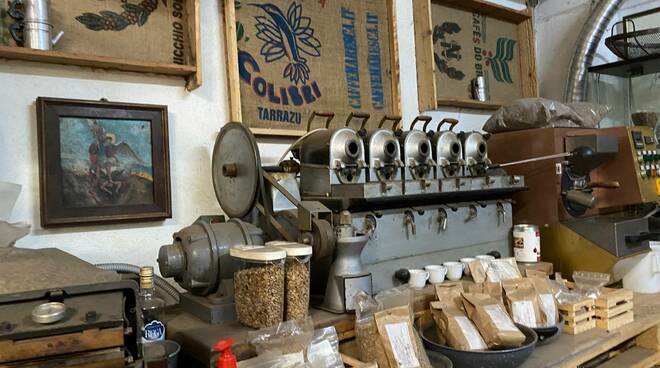
In the early 1900s, Giuseppe Gargiulo had to make a decision: either to close the coffee factory or hand it down to one of his two daughters.

The Maresca family, of Piano di Sorrento is a “family made by women,” said Olga Stinga, the wife of the current owner, Michele Gargiulo.
Maria Laura Gargiulo inherited Casa del Caffe Giuseppe Maresca, also known as Torrefazione Caffe-Giuseppe Maresca, which was founded in 1848. This made her one of the first business women in the Sorrento Peninsula.
It has been passed down four generations, providing Piano residents, local bars, restaurants, hotels, and clients in France, China, Germany and the United States with its authentic, 100% Arabica coffee, roasted with a combination of citrus and olive wood. They’ve also produced Don Alfonso’s coffee, a Michelin Star restaurant in Sorrento, Italy for nearly 10 years.
This was not the first time the family almost lost the factory. Under Fascist rule, before and during the Second World War, Italian organic products were only allowed to be purchased from their own colonies. The only colony that produced coffee beans was in Africa, while Casa del Caffe Giuseppe Maresca liked to purchase its beans from Central America. When they continued to buy beans from Central America, the government closed down the factory for disregarding regulations. However, Michele Gargiulo’s grandfather, Giuseppe Maresca, decided to continue roasting and selling beans in secret until the factory was allowed to re-open at the end of the war.
Gargiulo started the factory after a nobleman traveling to Brazil encouraged him to buy coffee beans to roast and sell. The beans arrived in the factory and in a handheld little roaster they were turned inside with wood burning underneath (pictured below).

Nearly 180 years later, they continue to roast coffee beans to the same high standard of quality, although now with some much bigger equipment. The original 1920 brewing equipment is still in the front of the factory and was used until 2003, when Gargiulo took over and decided to expand the factory, adding a new, bigger roasting machine.

Today, Gargiulo roasts the coffee beans twice a week. He begins roasting at 5 a.m. and finishes around 9 a.m., and then he goes home for a short rest before opening the shop for the day. The front of the business is both a shop and a museum, displaying homemade products and generational photographs.

Bigger companies roast their beans with gas which only takes about three minutes. Instead, Gargiulo uses wood from his garden in Piano which gives the coffee a more unique flavor. This increases the roasting time to 30 minutes, with the temperature reaching about 608 degrees Fahrenheit. The extra time is beneficial for the factory to produce their unique product. After the beans are finished, they appear bigger, darker brown and have a fragrance of coffee. Gargiulo takes the outsides of the beans that come off during the roast to use as fertilizer so that nothing goes to waste.

According to Gargiulo’s wife, in Italian culture, offering someone coffee is a way to let them know their presence is welcome. In 1861 Giuseppe Garibaldi, an Italian general, traveled through Italy to promote unification, and Gargiulo rode his horse to meet him and offer him coffee in Naples. The family still practices this today, as the first time Gargiulo brought Stinga home to meet his family, the women waited for her and offered her a cup of coffee. Traditions like this have been an important part of the factory’s history. His grandmother told her one day she would learn the family’s special secret to preparing coffee. Stinga finally found out years later, on her wedding day.

Since 1914, Casa del Caffe Giuseppe Maresca never stops roasting on August 7. That day marked the birth of Giuseppe Maresca. He was born in the factory surrounded by the smell of coffee, since his mother, Maria Laura Gargiulo, went into labor as she waited for the coffee to roast. The family referred to him as having coffee in his veins instead of blood, said Stinga.
Two years ago, a new son joined the “family made by women.” While it is too soon to tell if he will follow his father into the coffee business, the last 180 years have shown the factory will always find a way to keep roasting coffee while keeping the factory’s mission of creating a unique product alive.


